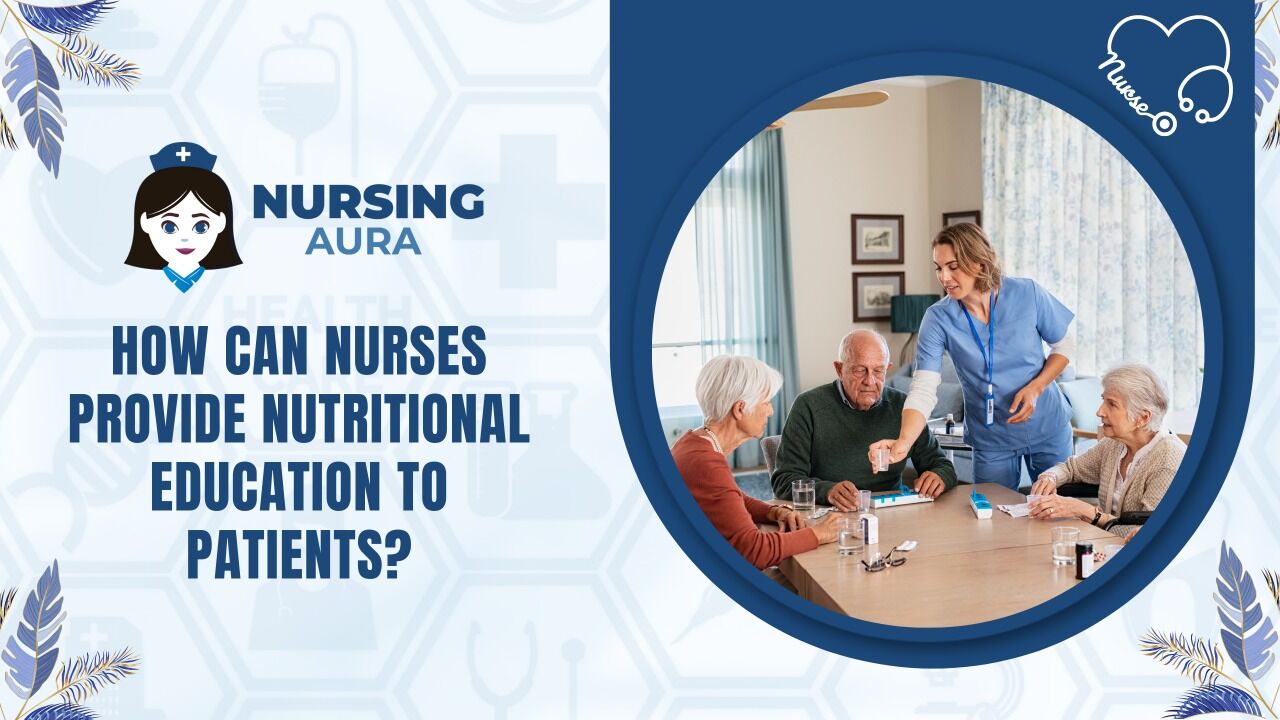Proper nutrition is essential for illness prevention, disease rehabilitation, and overall health. A balanced and nutritious diet will help you look and feel wonderful. Since nurses are the patients’ first point of contact, they should understand the relevance of nutritional education and its foundations and be able to educate their patients on how to make healthy food choices.
What Role Does Nutrition Play in Health?
Choosing nutritious foods is essential for the prevention and management of diseases, particularly those requiring long-term therapy, such as diabetes and coronary artery disease.
A nurse may present a presentation on how a high-sugar diet may induce type 2 diabetes as one fact of healthy and intelligent eating. Diet is crucial for diabetic patients. Being overweight is one of the major risk factors for type 2 diabetes, and a high-calorie diet contributes to weight gain. Appetite loss can be caused by a variety of diseases and treatments, from the common cold to chemotherapy. Weight loss can increase the risk of disease, thus consuming more frequent meals or little snacks throughout the day can be highly beneficial.
For example, protein is necessary for wound healing. Additionally, fats and carbs are essential for wound healing and restoration. They block the body from using protein as an energy source, allowing it to be used for tissue repair.
In addition to ensuring that they consume a healthy diet, those who are ill must also ensure that they consume enough food to suit their body’s nutritional needs.
How Can Nurses Educate Patients Regarding a Healthy Diet?
There are several methods in which nurses can demonstrate to their patients the importance of proper diet to their health. The importance of awareness at local health hubs is crucial to community health. A nurse with the necessary nutritional education & knowledge can create a PowerPoint presentation to present to a group of elders during a health fair. They can also provide participants with written materials to take home for additional review and guidance.
Home-based nurses are more concerned with nutrition as it relates to recovery from disease, surgery, or other treatments. As many patients will be on special diets, nurses can discuss these meals with patients at their bedside or in their home kitchens and explain how they will aid in their rehabilitation. A healthy diet can take a patient a long way, especially if he or she want to avoid the hospital.
Nutritional Education and Nursing Curriculum
Education is the most important aspect in arming nurses with nutritional knowledge. Students in nursing must be instructed in screening and evaluation, planning, implementation, and evaluation of health consideration. To appreciate the reasoning behind the components of nutritional consideration, a solid foundation in health science fundamentals is required.
Furthermore, all branches of nursing and midwives should get the same essential nutrition training. There may be a propensity to emphasize certain aspects of nutritional care and related skills in adults and children, but not in others. In any case, nurses specializing in any specialty will encounter patients requiring global assessment, evaluation, planning, and execution. Various persons with learning disabilities, for instance, require gastrostomy feeding care, and obesity management of the patients may constitute a substantial portion of the learning disability nurse’s responsibilities.
Poor appetite and food intake are associated with a variety of health problems; hence, screening and evaluation of nutritional status should be an integral component of the assessment.

